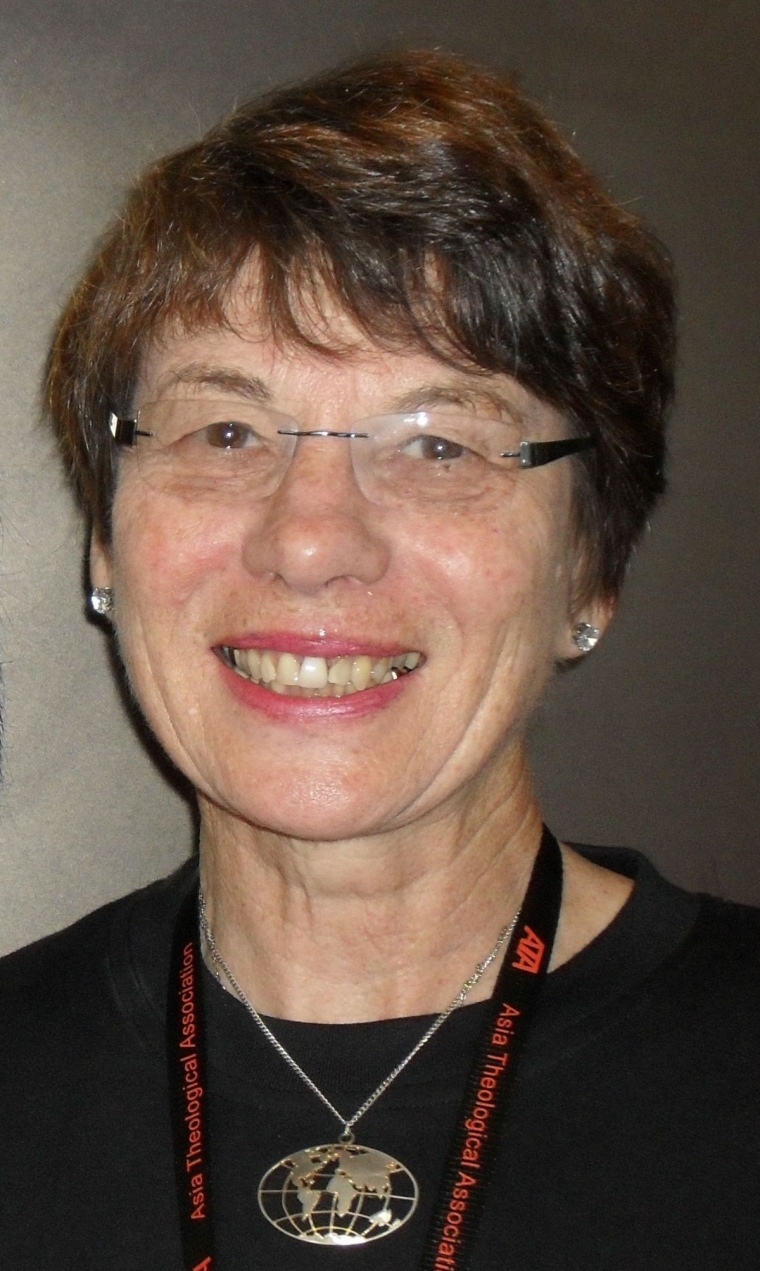

The room was hushed as I prepared to push the button on the blender. All eyes were upon me.
I was feeling rather pleased with myself, this Tuesday morning. I'd been leading a weekly English Conversation class at my church for just a few months, working with immigrants from Korea, China and Japan. The challenge was to make each lesson different enough to keep them interested.
I designed the curriculum myself, and loved teaching the learners various aspects of New Zealand culture. We talked about Kiwi hospitality and what to expect when they visited a Kiwi home. We talked about some great Kiwis from history—Sir Edmund Hillary, Kate Sheppard, Sir Ernest Rutherford and many others.
The learners seemed to enjoy the class and often paid me genuine compliments. They were intermediate level students, meaning that although their English was not fluent, they could all understand it and speak it a little. Our job as volunteer teachers was just to give them practice.
Cooking class
This particular morning I'd decided it would be good to spice things up with a cooking demonstration. I'd always been an avid watcher of cooking shows on TV, especially the programmes by Nigella Lawson. She was my role model, a woman who made beautiful desserts look easy.
The logistics of the demonstration were never going to be easy, however, since the room we used had no stove, no sink, and no fridge —just a desk at the front. It was not remotely like Nigella's kitchen. Still, one had to do the best one could.
The challenge was to find an uncomplicated recipe with only a few ingredients, and one that required no baking. After a bit of thought I came up with the idea of making truffles. Many of you will be familiar with these. All you do is whiz up some dates and hazel nuts in a blender, with a tablespoon of water. This turns everything into a sticky mass.
Then you take little pieces, roll them into balls, dip each one in coconut, and voila! Some delicious, healthy, sweets that everyone —even the non-cooks—could make for themselves and their children. What could possibly go wrong?
I arrived at church early this Tuesday morning to set things up. The blender was plugged in and the dates, hazelnuts and coconut were at the ready. At the beginning I explained to the class, in my simplest English, what I was going to do, and invited them to come to the front to watch the process.
It was fun to be doing something a bit different, and I hoped this simple snack would be something they could practise making at home. Moreover, later that morning they would have something to talk about in their small groups. We would ask them to share their own cooking experiences since arriving in New Zealand. Many had told me they had never cooked anything but Asian foods.
The lesson
We started by talking about what constituted nutritious foods, and how good it was to avoid refined sugar wherever possible. New Zealanders, I said, were a lot more conscious of healthy eating these days.
"This morning we're going to make a sweet with just three ingredients," I told them, "and we don't need to add any sugar at all."
Deep down I was feeling a little anxious, but tried not to show it. I remembered the advice of a retired principal who had mentored me, as a nervous new teacher, many years ago.
"Teaching is ninety percent acting," he told me.
I'd never forgotten those words. You acted confident and you became confident.
I calmly poured the dates and nuts and water into the blender, thinking that Nigella herself couldn't have been more professional, more poised. The class seemed suitably impressed. They weren't to know that this was the first cooking demonstration I'd ever done in my life.
"So when you've got everything in the container you just switch it on like this...." I said with a flourish.
The little machine roared into action.
Action
Unfortunately, in my nervousness I'd forgotten one tiny detail—to replace the lid on the blender.
Whoosh! Hazelnuts flew everywhere, to the astonishment of the immigrants. They soared into the air, fell on the desk, and rolled around the floor. Some hit the ceiling. They were under the seats, and all over the carpet. The bemused students picked up what they could and helped to restore order. It was a cooking lesson they would never forget. Even today some of them talk about the morning Julie made truffles.

Days later I was able to see the funny side, even to laugh. There was doubtless a lesson to be gained from this unfortunate incident. I'd been so confident of my teaching ability—almost smug, if I'm honest.
The old adage flashed into my mind, "Pride goes before a fall..." Was it wisdom from Proverbs?
Proverbs or not, I had to accept, ruefully, that everyone messed up occasionally. It was part of being human.
I wonder what advice Nigella might have offered in my situation?
Julie Belding is a freelance editor, ESOL teacher and grandmother of five.
Julie Belding's previous articles may be viewed at http://www.pressserviceinternational.org/julie-belding.html